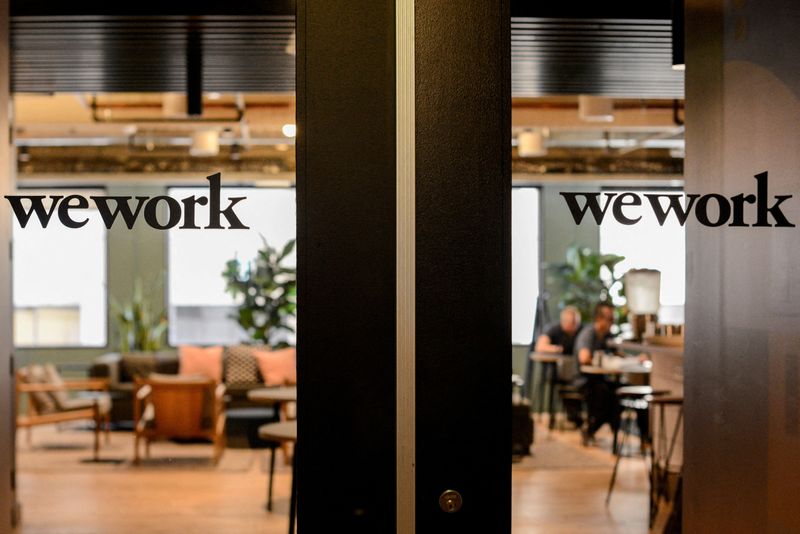By Shivansh Tiwary and Kannaki Deka
(Reuters) -WeWork said on Friday it would proceed with a one-for-forty reverse stock split to regain compliance with listing requirements, days after the flexible workspace provider raised "substantial doubt" over its ability to continue operations.
The company's shares have lost nearly all of their value since making market debut through a blank-check merger in October 2021 at a much-reduced valuation. They were last down 23.6% at 12 cents on Friday.
WeWork, once privately valued at $47 billion, now has a market capitalization of about $336 million in a stunning reversal of fortune.
The SoftBank-backed company has been in turmoil ever since its plans to go public in 2019 imploded as investors worried over its hefty losses and began to doubt its business model of taking long-term leases and renting them for the short term.
WeWork earlier this month reported a 3% drop in total physical memberships from a year earlier, citing increasing competition, macroeconomic volatility and softer demand than anticipated.
Meanwhile, the company in the past year launched a series of steps to save cash such as exiting locations, cutting jobs and striking a deal to cut debt by about $1.5 billion and extend the date of some maturities.
In May, however, CEO Sandeep Mathrani, tasked with the company's turnaround resigned, followed by the exit of CFO Andre Fernandez in the same month.
WeWork in April received a non-compliance notice from the New York Stock Exchange after its stock closed below $1 on average over a consecutive 30 trading-day period. The company had six months to regain compliance after receiving the notice.
The reverse stock split, which consolidates the number of existing shares into fewer shares, will help regain compliance with the $1.00 per share minimum closing price required for continued listing.

"It could suggest that they are still figuring out or exploring ways to raise more capital," Mizuho Securities analyst Vikram Malhotra said.
The reverse stock split, authorized by shareholders in June, will be effective at market close on Sept. 1, the company said.